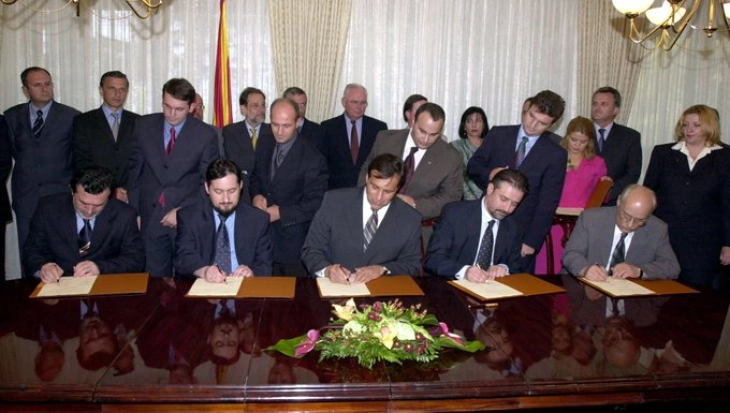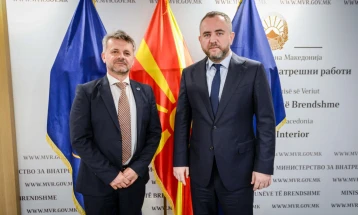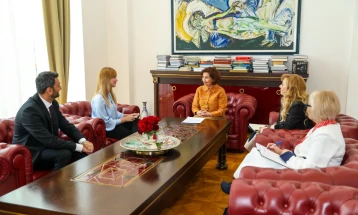Ohrid Framework Agreement marks 22nd anniversary
- The Ohrid Framework Agreement, which put an end to the conflict that lasted for several months in the country, was signed on this day 22 years ago.

Skopje, 13 August 2023 (MIA) - The Ohrid Framework Agreement, which put an end to the conflict that lasted for several months in the country, was signed on this day 22 years ago.
On the occasion, the Ministry of Political System and Community Relations is hosting the school of young leaders "Peace Forum Dialogue", including over 80 participants. PFD gives young people the opportunity to acquire knowledge on the functioning of the political system in the country, implementation of policies arising from the Ohrid Framework Agreement, enhancement of interethnic relations, conflict management, building peace, social cohesion, consensual democracy, coexistence among ethnic communities and integration of citizens in the public, societal, economic and cultural life.
Following days of negotiations in Ohrid, the Ohrid Framework Agreement was signed in Skopje on August 13, 2001. Then President Boris Trajkovski, former Prime Minister and VMRO-DPMNE leader Ljubcho Georgievski, as well as SDSM, DPA and PDP leaders, Branko Crvenkovski, Arben Xhaferi and Imer Imeri respectively, signed the treaty.
EU and US special representatives, Francois Leotard and James Pardew respectively, signed the document on behalf of the international community.
In the negotiations that started in July in Skopje and then continued in Ohrid, several advisors and experts were consulted, and in certain articles issued over the years, Ali Ahmeti, who at that time led the so-called National Liberation Army (NLA), was also consulted.

The basic principles of the Ohrid Agreement state that “the use of violence in pursuit of political aims is rejected completely and unconditionally.”
“Only peaceful political solutions can assure a stable and democratic future for Macedonia. Macedonia’s sovereignty and territorial integrity, and the unitary character of the State are inviolable and must be preserved. There are no territorial solutions to ethnic issues. The multi-ethnic character of Macedonia’s society must be preserved and reflected in public life. A modern democratic state in its natural course of development and maturation must continually ensure that its Constitution fully meets the needs of all its citizens and comports with the highest international standards, which themselves continue to evolve. The development of local self-government is essential for encouraging the participation of citizens in democratic life, and for promoting respect for the identity of communities,” the document states.
More than 130 laws and amendments have been passed over the years, most of which referring to non-discrimination and just representation, identity, culture, education and power decentralization.
The Secretariat for the Implementation of the Ohrid Framework Agreement, a government institution in charge with the agreement, was set up, which was later transformed into the Ministry of Political System and Inter-Community Relations.
Photo: MIA archive







